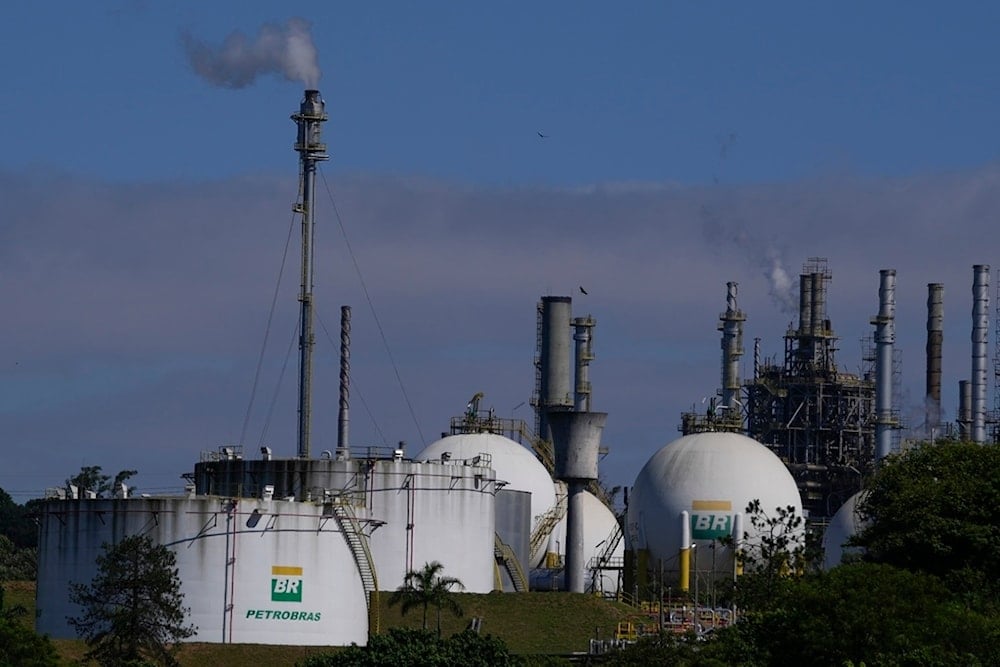OPEC+ to boost oil output again amid market weakness, internal rift
Saudi Arabia, OPEC's de facto leader, is reportedly leading the charge to accelerate the production increases as a means of enforcing compliance discipline.
-

FILE - Capuava oil refinery owned by Petrobras sits in Maui, on the outskirts of Sao Paulo, Brazil, Nov. 6, 2023 (AP Photo/Andre Penner, File)
OPEC and its allies have authorized another significant increase in oil production, approving a 411,000 barrels per day (bpd) hike for June. This follows a similar boost in May as the group accelerates its plan to phase out previous output cuts, despite persistent price declines and mounting concerns about global demand.
The decision came during a short online meeting on Saturday. The producer alliance reiterated that the "fundamentals of the oil market were healthy," though Brent crude prices tell a different story. Futures dropped more than 1% on Friday to $61.29 per barrel, the lowest level seen in nearly four years, reflecting investor unease over potential oversupply and slowing economic growth, exacerbated by US tariff policies.
This latest output hike is part of a scheduled rollback of a 2.2 million bpd cut agreed upon last December by eight OPEC+ countries, including Saudi Arabia, Russia, Iraq, and the UAE. With April, May, and June combined, the cumulative increase now stands at 960,000 bpd, representing a 44% unwinding of those cuts, according to Reuters estimates.
While the public justification rests on stabilizing supply amid low inventories, internal and external political pressures also appear to be shaping OPEC+'s strategy. US President Donald Trump has repeatedly called for more oil production to ease fuel costs, and his upcoming visit to Saudi Arabia later this month adds further weight to Washington's influence on the group.
Quota Rift
Meanwhile, internal discord has grown. Saudi Arabia, OPEC's de facto leader, is reportedly leading the charge to accelerate the production increases as a means of enforcing compliance discipline. Baghdad and Nur-Sultan have consistently failed to meet their quota obligations, and frustration is mounting in Riyadh.
"Compliance again appears to be the key focus, with Kazakhstan and Iraq continuing to miss their compensation targets, alongside Russia to a lesser extent," Helima Croft of RBC Capital Markets told Reuters.
Despite the phased increases, the group is still withholding nearly 5 million bpd from the market, with many of those curbs expected to stay in place until 2026. According to sources cited by Reuters, Saudi Arabia has informed partners that it will not support new supply cuts to prop up prices, signaling a shift in the kingdom's strategy toward a more hardline stance on internal compliance and market share.
Read more: Iraq plans to cut gas flaring to 20% in 2025
OPEC+ is set to convene for a full ministerial meeting on May 28, where members will review market trends and determine whether to proceed with further hikes or recalibrate in response to ongoing volatility.

 3 Min Read
3 Min Read








